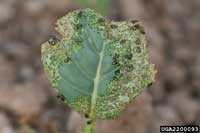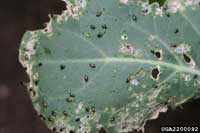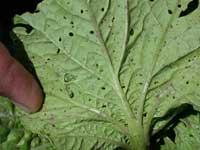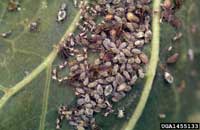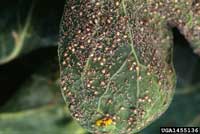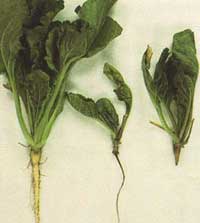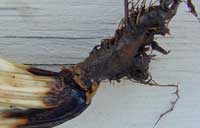Extension > Garden > Diagnose a problem > What's wrong with my plant? > Vegetable > Swiss Chard > Plant Wilts
Swiss Chard > Whole plant > Plant Wilts
1 of 3
Flea Beetles
Disonycha xanthomelas, Systena blanda, and Phyllotreta spp.
- Heavy feeding may cause wilting
- Adult feeding on leaves creates shallow pits and small, irregular holes giving it a "shot hole" appearance
- Adults are small (1/16 to 1/8 inch long), and vary in color from black, bronze, bluish, or brown to metallic gray, while some species have stripes
- Present throughout the growing season
- More information on Flea Beetles
2 of 3
Green Peach Aphid and Turnip Aphid
Myzus persicae, Lipaphis erysimi
- Feeding by larger numbers of aphids can cause curling, stunting, and wilting of leaves
- Feeding by small or moderate numbers of aphids usually does not cause visible symptoms
- Small insects (1/10th inch long), pear-shaped, usually greenish; clustered on underside of leaves
- Active during spring and summer
- More information on Green Peach Aphid and Turnip Aphid
3 of 3
Root Rot Complex
Pythium spp., Rhizoctonia solani, Aphanomyces cochlioides
- Sunken brown spots on fruit, can grow to rot part or all of fruit
- Fruit rot is soft, watery and extends to the core of the apple
- Small blister like spots on branches exude, watery fluid
- Branch infections grow to cracked, flakey, orange canker
- Leaves on girdled branches wilt, die and turn brown
- More information on Root Rot Complex



